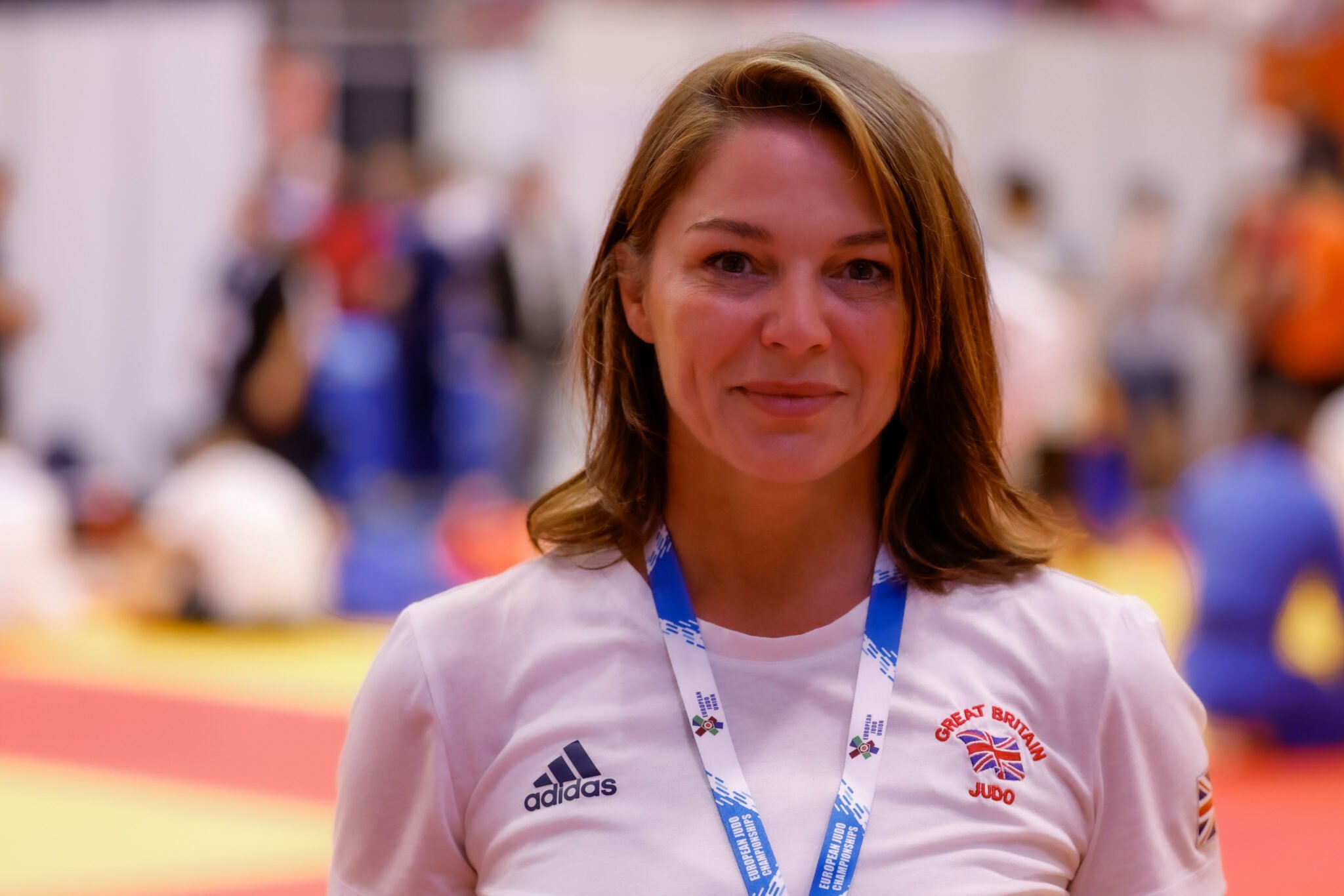With all eyes on this new generation, potential breakthrough superstars for the Los Angeles Olympic Games and beyond, it is easy to oversee the faces in the coaching chairs.
In the Cadet European Championships Sofia 2024, there are many famous faces and successful athletes from yesteryear who are passing on their knowledge, expertise and experience to these young athletes, influencing their path. For most however, things have changed a lot since they were 15, 16 and 17 years old, and this is a whole new ballgame.
Within the European Judo Union, we know Chloe COWEN VICKERS as one of our expert commentators, but this week she is coaching the Great Britain cadets. Cowen Vickers has a wealth of experience, moving directly in to the junior events as a 15 year-old athlete, taking a European bronze in 1988 and Junior World bronze at 16 years old in 1990. This was her last event as a junior and was launched on to the senior circuit, placing 7th in the 1990 European Championships, and in 1993, whilst still junior-aged, was a Senior European finalist. Cowen Vickers continued in this way, and the 2000 Olympian claimed five European medals during her career. So why is it that so many of these retired athletes have no cadet history and ventured immediately on to the junior stage?
The Cadet European Championships, as we know it now, was reintroduced in 2000, so it simply wasn’t available to me when I was a young competitor, and of course for many others. Like many in my time, the only cadet-aged athletes who were able to find success as juniors, were physically matured. So the main benefit of having this younger age bracket is that it gives athletes from the age of 15-17, a window to develop at a higher level, even if they don’t have the physicality yet.
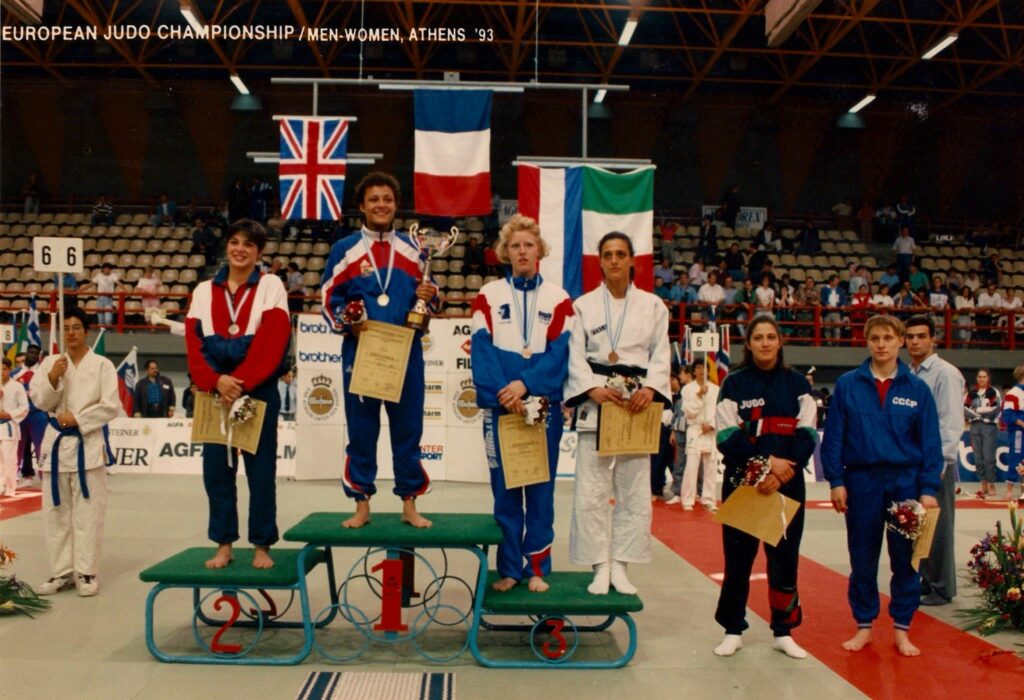
We can talk about technical ability and physicality at this age, but when these young athletes are exposed to high level situations, they’re also able to develop professional behaviours required to move on to the junior and senior circuit which is equally as important.
Looking at other teams, there some stark differences which isn’t uncommon at this age,
This event gives children an opportunity in countries that don’t have specialised sports schools, or full time programmes for younger athletes to evolve, as many are in full time education and don’t have the opportunity to train more than a few times a week.
In the EJU we now have the U15 Judo Hopes programme aimed at helping athletes to acquire great technical ability, with the assistance of the Kodokan experts and former European athletes, but in the beginning, the cadet tournaments were built with the same principals.
For some nations, winning medals in this age bracket can be very important, but for others without access to full time training, medals come later. We need to make them realise that it isn’t only about winning a medal, but to learn how to prepare for a competition, manage a contest, look at areas where they can advance, take away real positives and create a winning mentality, and they do this by seeing actual examples on the tatami. When my athletes come here, I want them to fall in love with judo and have a good experience, win or lose, I want them to leave with the mindset to succeed. It is the duty of the coaches to ensure they have this positive experience.
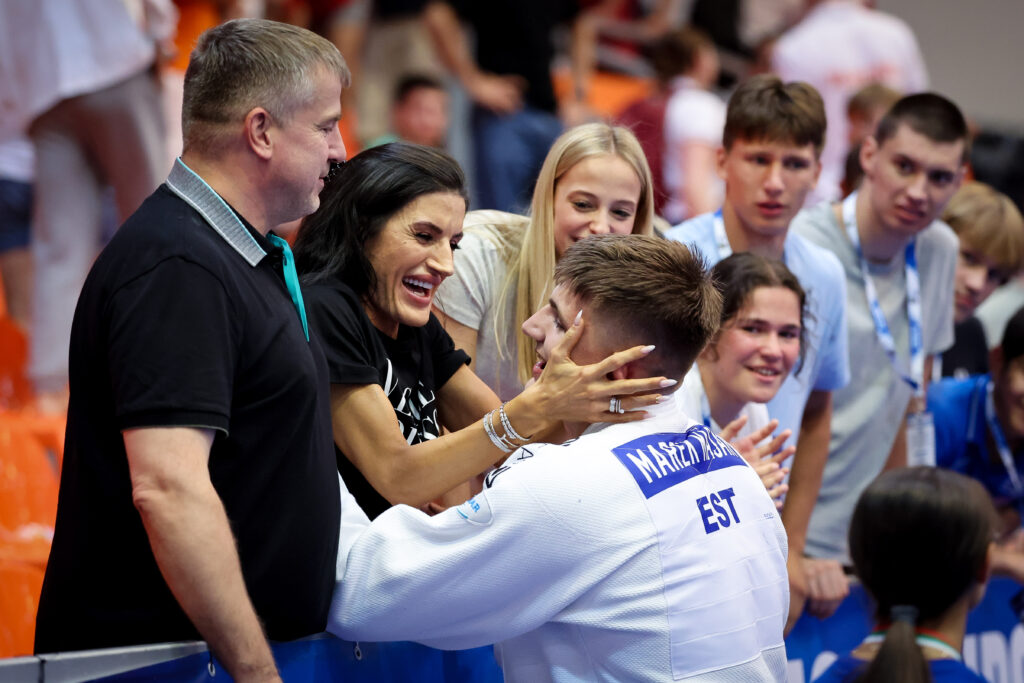
Before this Cadet European Championships, there were 11 Cadet European Cup events, followed by a training camp in each location, as well as a Cadet Training Camp in Porec, Croatia, in the weeks leading up to this event. There is a lot of work behind the scenes and Cowen Vickers highlights this,
This is the premier event for the cadet athletes, even being selected to compete here is a massive achievement in itself, and for them, a real step towards world class judo. The organisation of the event here in Bulgaria is incredible, the venue set up mimics a Senior European Championship, and will be the first time many of them have experienced anything like this. There are 44 nations here, it is something they will all remember forever.
In the coaching seat for the Individual Neutral Athletes is Kirill VOPROSOV, a well known figure on the World Tour, beginning his career by bypassing the cadet level and competing immediately as a junior. In the U20 division, Voprosov managed to secure a European Championships silver in 2005, and then nine years later made his biggest achievements as a senior athlete with a 2014 European silver and World bronze.
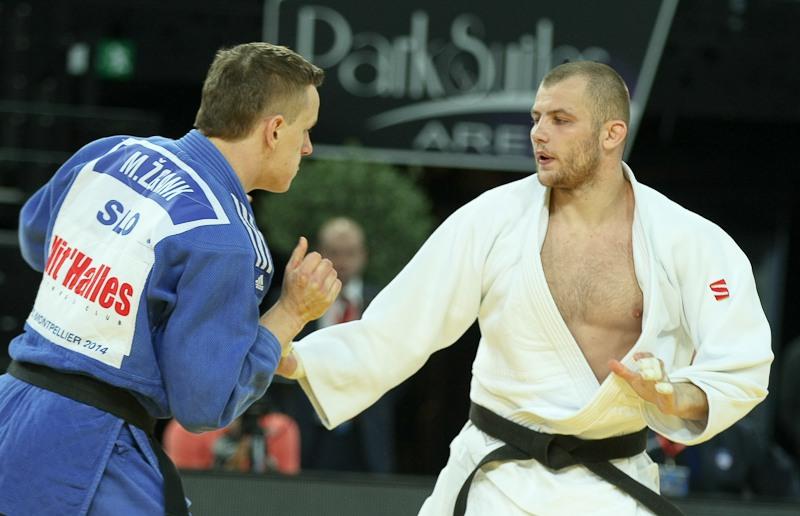
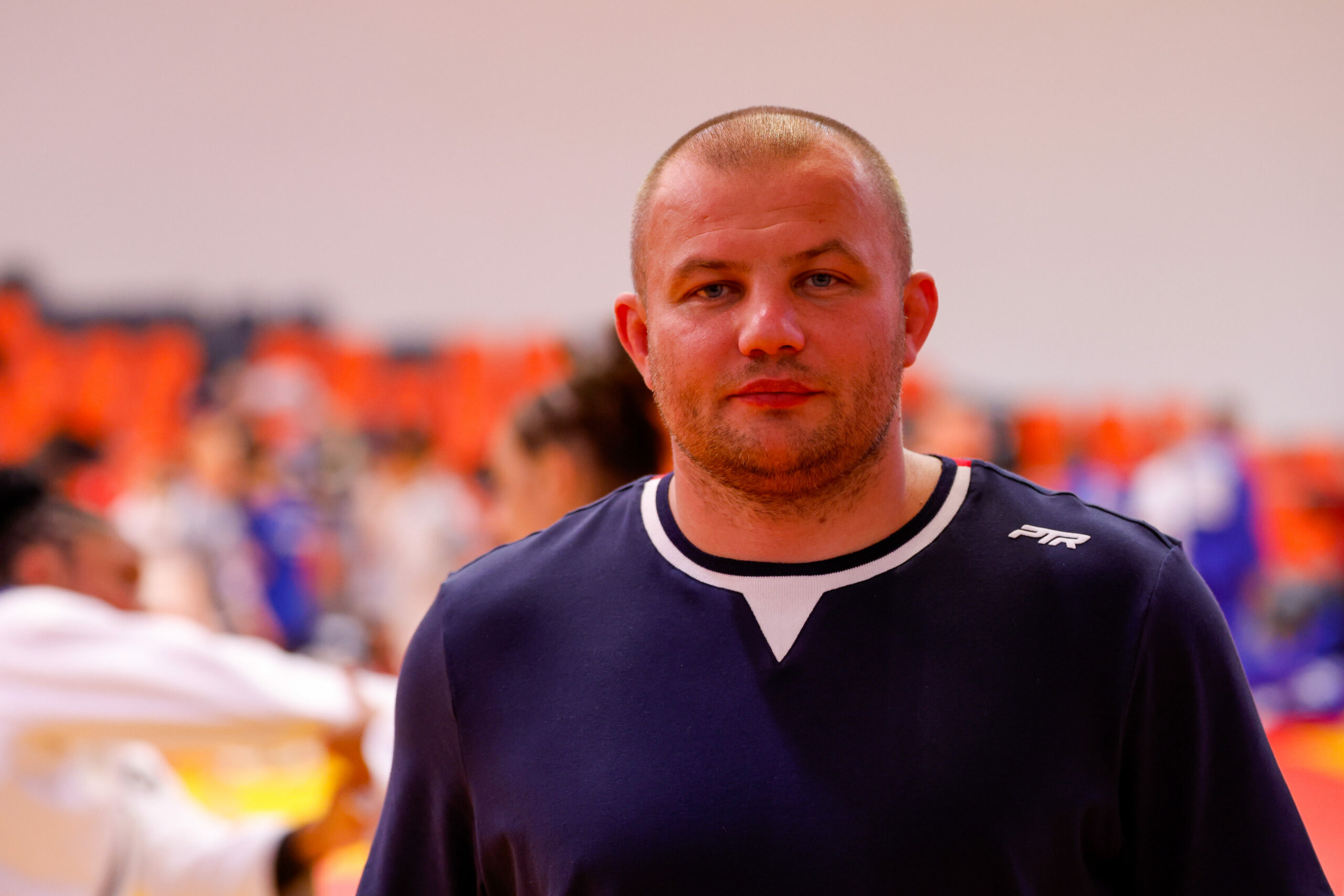
The two athletes who have transitioned from competitor to coach most recently are Nijat SHIKHALIZADA (AZE) and Majlinda KELMENDI (KOS). Both said goodbye to being active judoka on the World Judo Tour in 2021, after having claimed some of the most sought after accolades. Kelmendi made history for Kosovo, with senior results including four European titles, two World titles and of course, the sensational Olympic gold medal in Rio de Janeiro. However she started with these lofty results as a much younger athlete, and can also boast of Junior European and Junior World achievements.
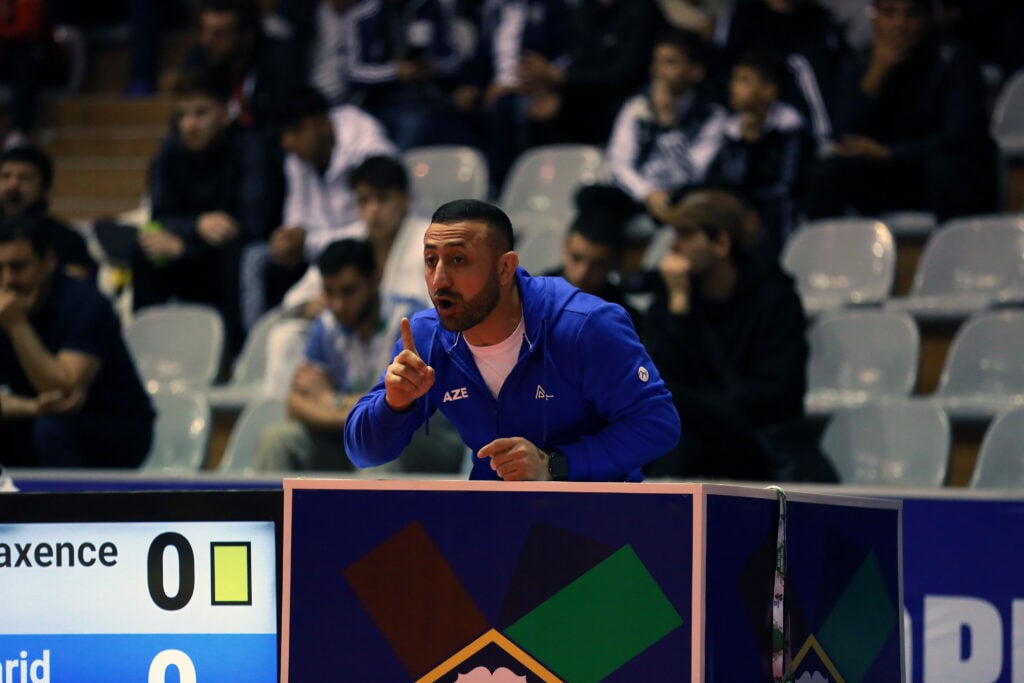
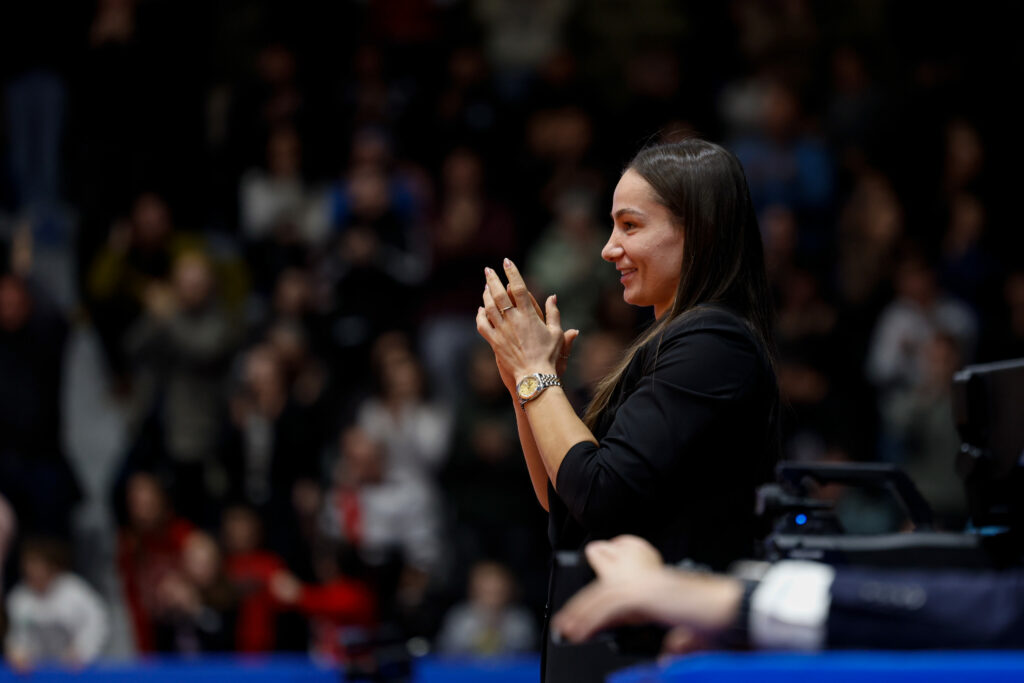
Shikhalizada still lays claim to being the youngest male senior World medallist, after winning the bronze in Cairo, 2005. It was in the same year that he became the Junior European in Zagreb, and in 2006 took the Junior World title. Unlike the other coaching staff here, he also has a Cadet title from 2004.
Author: Thea Cowen



